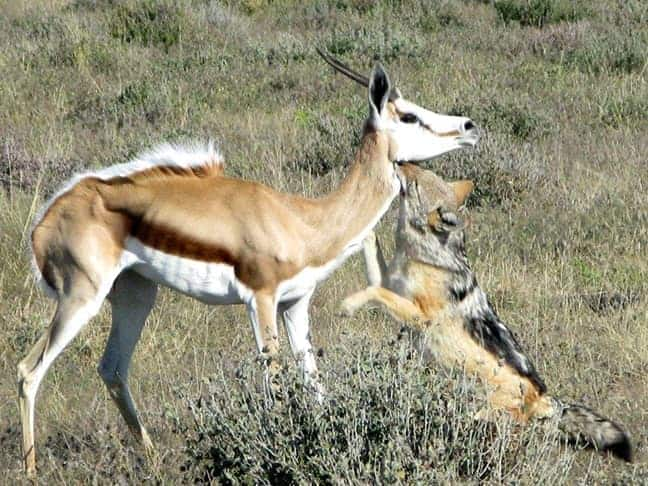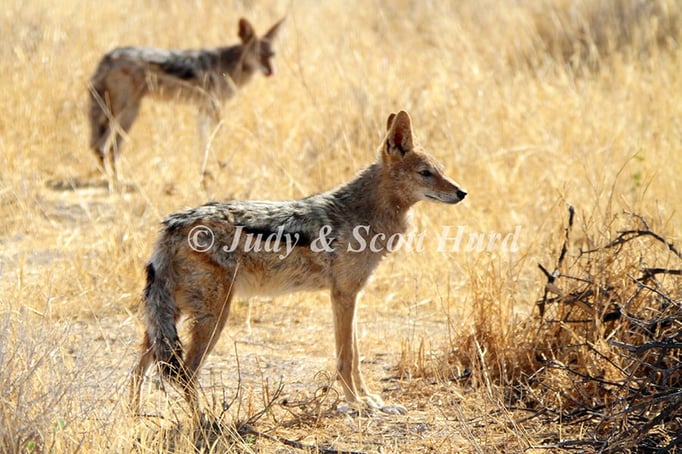Like the fox in European folklore, the jackal is often represented in African folk tales as a trickster. Its ability to adapt to changing circumstances and its legendary stealth and cunning have inspired stories about the wily creature that dodges traps and avoids hunters year in year out. The jackal is reputed to be able to obliterate its tracks, feign death and rid itself of fleas by immersing itself in water, only exposing a tuft of sheep’s wool which it holds in its snout.
The notorious Broken Toe, a jackal with a distinctive spoor that continually evaded capture, was enscribed into folklore by the well-known writer Lawrence Green, who recorded its escapades in his book “Karoo”. Khoikhoi fables include stories of jackal outwitting lion and also tell how it acquired its black saddle by offering to carry the sun on its back.
The black-backed jackal is also known as the silver-backed jackal for its silver-flecked black saddle. Fossil records reveal that it is the oldest existing member of the genus Canis. He inhabits the northern stretches of East Africa and southern Africa, from the Skeleton Coast and Etosha National Park to the Drakensberg grasslands.
Surprisingly, the handsome jackal, with its unfortunate reputation as a small stock predator, is monogamous and forms a lifelong bond that lasts for its approximately thirteen-year lifespan or until the death of its mate. It has a protracted courtship period and the pair is a cooperative and synchronised team, caring for their young, marking and defending territory and hunting. They will call and answer when separated. They are also good parents, regurgitating food for their pups that hide in dens or the abandoned burrows of other species, usually aardvark.
Equivalent to the wolf’s call in the northern hemisphere, the jackal’s call can be heard echoing through the savannah or desert, especially during the mating season when it becomes increasingly vocal, epitomising the African night.
Referred to as a nimble opportunist, the small (40 cm, 7-10 kg), black-backed jackal lives by its wits. Although it has been ruthlessly persecuted as animal and human habitat infringe upon each other, its resourcefulness and adaptability have ensured its profusion. In addition to outwitting the king of the beasts in folklore, it has also been referred to by farmers as a robber and pirate. In nature, however, its tricks and tactics are not motivated by malice or treachery; they are merely strategies for survival.







SUBMIT YOUR COMMENT